CONTACTStaffCAREER OPPORTUNITIESADVERTISE WITH USPRIVACY POLICYPRIVACY PREFERENCESTERMS OF USELEGAL NOTICE
© 2025 Pride Publishing Inc.
All Rights reserved
All Rights reserved
Scroll To Top
By continuing to use our site, you agree to our Private Policy and Terms of Use.
Alfie raked fingernails gently across one of his nipples, his other hand pushing aside Johns neckcloth so that he could pepper Johns throat with little bites. Nnh! John managed. His trapped cock hurt, bent and straining against the heavy, harsh fabric of his breeches.... Alfies mouth was on his and sweet fire pulsed down his backbone as he opened to Alfies questing tongue. Gathered up in both arms, his head back, astonished and all the more aroused by his own deep surrender, he felt Alfies knuckles dig hard into his back as the man snapped the tapes at the back of his waistband and shoved the suddenly loosened breeches down to his knees. [False Colors] Alex Beecroft, the writer of this raunchy encounter and a happily married mother of two with short red hair, picks me up in an old Volvo wagon at the train station in her tiny, green Cambridgeshire town. Her home reflects a daily bustle of family activity: framed pictures of adorable blonde children, various craft supplies crowded on tables, stacks of handmade wicker baskets, rosebushes thriving in the backyard. It is in no way visually apparent that Beecroft is one of the most popular and beloved authors in the rapidly expanding male/male romance genre, a defining feature of which is explicit gay male sex. M/M romance fiction is the latest development to evolve out of the renegade slash fiction phenomenon -- an entire subculture devoted to stories that take straight male buddy characters from various pop culture offerings and write them into steamy gay love scenes. What has been a relatively recent and surprising revelation is that the majority of slash creators (known as slashers) and fans are heterosexual, college-educated women -- and that for a rather large number of them, gay erotica is the pornography of choice. In spring 2009, Philadelphia-based publishing house Running Press premiered a new line of M/M soft-core erotica designed to tap this growing market, based on research indicating that M/M was among the fastest-growing trends in the billion-dollar juggernaut that is romantic fiction. We were just listening to the market, says Craig Herman, associate publisher at Running Press. We saw the success of films like Brokeback Mountain, which had a strikingly large female audience for what seemed like a niche film. And after doing research and listening to booksellers, it seemed that there was a larger female audience that was attracted to gay porn, which was surprising. And however taboo, the M/M market is proving to be irresistible. Even Harlequin, the oldest and most uptight of the romance publishing houses, is getting in on the hot M/M action with its new imprint, Carina Press. Josh Lanyon, one of the M/M genres few male authors, is breezily straightforward on his Carina author blog, inviting fans to congregate on eHarlequin.com: Hopefully well get some discussions going between Carina Presss M/M authors (and aspiring authors) and those of you who like your romance with a double side of beef. (Cough!) To kick off its M/M line, Running Press published two gay romantic historical novels set in 16th- to 19th-century England during the naval age. Transgressions, by an author writing under the pen name Erastes, features two hot iron forgers in 1642 England, set against a background of civil war and witch trials. Beecrofts False Colors recounts the erotic tensions between a ships captain and his first mate on a suicide mission to stop the slave trade off the coast of Algiers. Reviewer Joan/Sarah F. waxed rhapsodic over False Colors on DearAuthor.com. Rarely, oh so rarely, Ill read a book that is so sublime, so transcendent, I actually come away from it a little melancholy, because its over. But the process of devouring the book, of eking out its layered, textured meaning, of savoring its descriptions, and the emotions -- oh, the emotions! -- leaves me flying for days....This is one of those books. It ravished me. It scoured my insides. I feel like Im stuck in it and I dont ever want to get out. As Beecroft makes tea, a tiny red car pulls up in her driveway, and a large Englishwoman who writes under the pen name Erastes emerges. Her hair is twisted in a knot secured by two ballpoint pens. There is a film of cat hair on her black pants. Warmly, she presents me with a copy of Standish, her first gay Regency era novel, jovially acknowledging the cat print in the unidentified brown crust on the back cover. How did two such charming English ladies ever become literary stars of the eyebrow-raising M/M genre? Its a talking dog, isnt it? says Erastes. Nobodys surprised that gay men like reading books about gay men. Everyones surprised that straight women like reading them. If I asked any man within a hundred yards, Whats your biggest fantasy? Theyre going to say, Two birds in bed! Both authors came to the M/M genre through slash fan fiction -- which Erastes refers to as the nursery slope. For me, it was Harry Potter, she says, grinning. While looking for anything online involving the Snape character, Erastes recalls, she stumbled onto Snape Fuh-Q Fest, an online archive of fan fiction where Snape, to her delight, was having sex with any character in the series you can think of. For Erastes it was a eureka moment -- she began to write her own Harry Potter slash. That was me too, says Beecroft, who discovered slash while running a search for the character of Qui-Gon in Star Wars: The Phantom Menace and, thus inspired, went on to write slash based on J.R.R. Tolkiens The Silmarillion and the Pirates of the Caribbean franchise. Ive been telling these kinds of stories in my head from puberty, since I was 11, says Beecroft. As long as Ive had sexuality, this has been it. I started writing and thinking up stories with two gay protagonists. I thought I was a single, solitary pervert. When I discovered slash, I thought, Oh, my God, Im normal! I was a complete tomboy, Erastes explains. I went to bed with men, and sometimes with two men -- I just didnt see what it was I was aiming at. Do you see what I mean? I had never thought: Buy a gay sex book. Then suddenly the light came on, and I thought, This makes perfect sense! In reading historical M/M romances by Erastes, Beecroft, and a few other M/M authors, I found them structurally similar to straight romance novelsboth varieties tended to culminate in a blissful, breeches-ripping penetration scene. But both authors take umbrage when I describe their work as gay pornography. It isnt all about the porn, Beecroft laments. I dont believe you, I say. I know. People dont, and its such an annoyance. Do you think a 300-page book thats got three sex scenes in it is all about the sex? Erastes concurs. I think people automatically think gay equals sex. That would be like saying heterosexual equals sex, and that is a very unfair thing to say. Both agree that the first kiss in their books is almost more intimate than sex. Explicit sex, however, is a necessary evil of writing M/M romance novels -- at least as far as publishers are concerned. When I first started, the publishers demanded a sex scene every chapter, said Erastes. But the more I write, the less I want to write sex scenes. I dont think I would ever write a book that didnt have a sex scene, but everything has to be integral to the story. I dont do explicit sex, says Beecroft. I try not to. Yes, you do, I counter. I read your book last night. Its pretty explicit -- the full anal happens. OK, Im not saying its not explicit. Im saying thats not what the books are about. I dont mind reading the occasional explicit scene, but Id prefer to fade to black. Cultural studies academics have been intrigued by slash fiction since the 1990s.Slashers have been thought of as fans who resist heteronormative culture and gender stereotypes. Since women are not equal to men in society, a straight romance narrative -- the usual machinations that bring a brutish alpha male and a wasp-waisted young female beauty to the point of bodice-ripping penetration -- cant deliver the same heady emotional frisson as a bromance, which slashers and M/M authors alike view as a courtship between equals, which culminates in the emotional jackpot of a true love based on loyalty, trust, caring, and mutual respect. In Nasa/Trek: Popular Science and Sex in America, academic Constance Penley asks the obvious question: Why are women fans so alienated from their own bodies that they can write erotic fantasies only in relation to a non-female body? She surmises that perhaps mens bodies are simply easier to fantasize with because they arent the legal, moral, religious battleground that womens bodies are. While I know organic sexual preferences are neither elective nor politically motivated, I couldnt help but feel, as a heterosexual female, that there was something self-assassinating and a little bit politically disturbing about the M/M fiction I read. Femininity, in this genre, is a culture that is so completely conquered as to be utterly vanquished. While the men in M/M novels are invariably described as looking like Roman gods, the women -- auxiliary characters such as unwanted wives or nosy scullery maids -- are not portrayed as sexually or emotionally desirable at all. They are usually quite the opposite -- weak, whining simps who cough up blood and lose their hair and/or their minds. I found myself asking the same question as Constance Penley: Can women like Beecroft and Erastes only feel really sexual in a fictional universe where their own sex doesnt really exist? Do you ever get accused of being a misogynist? I ask Beecroft. All the time, she replies. In your sexual imagination, why are there no women at all? She levels her gaze and answers in a steady, grounded voice. The plain and simple answer for me is that in my sexual imagination, Im a gay man. I write to satisfy a sexual desire that I cant physically satisfy in this body. Im a penetrative gay man as well, says Erastes. I ask a hair-raisingly personal question. If thats your sexual identity, why wouldnt you just buy a really good strap-on and be gay? I dont think my husband would like it, Beecroft replies, simply. Had I been younger and just entering my sexual life and sexual identity, I certainly would have done. She begins to blush and stammer, looking a bit like a 17-year-old boy, summoning the courage of his convictions. For a long time, I thought I was transgender. I thought I literally was a gay man trapped in a womans body. Now Im just confused. I dont really identify with either gender. But its taken me 40 years to get to this point. Erastes confesses similar feelings, albeit less conflicted. If I fantasize or watch porn, I watch gay porn, and I consider myself to be the penetrative man. But Im very much bisexual; gender doesnt really bother me. When it comes to a relationship, its a person. If I were going to have a woman partner for long term, then it would have to be somebody who understood the whole slash thing as well. Beecroft concurs: A lover would need to understand the slash thing. Wait, I ask, trying to take this in. So slash is really the end zone? Slash is the sexuality. Is slash part of the sexuality, or it is the whole thing? Both women agree: Slash is the whole thing. For both of them, and presumably for a number of their fans as well, slash, in itself, literally is sex. OK, slash is the sex, I say, absorbing this revelation. So why would you be wanting anyone to take the sex out of the sex? I dont know whether Im taking sex all the way out, Beecroft says. I identify with my lads. I want to be a man. I want to be a man fighting, a man thinking, sitting at his desk writing, as well as doing sex. All of it. Being a human being. Being a man at work is just as exciting as the sex. As Larry Flynt once discovered, erotic fantasies are all fun and games until somebody goes to hell. For Beecroft, who calls herself a quite committed Christian, the hardest thing wasnt coming to terms with her gender identity, but reconciling slash with her religion. The married-with-children straight-woman part of my life is external. Its part of the truth, but its a hell of a lot more complicated than that. After discovering slash and happily reveling in it for a couple of years, Beecroft had an internal crisis. Suddenly, it hit me: Sins of the imagination are sins too. So if homosexuality is a sin and if Im getting pleasure from thinking about homosexuality -- if I think of myself inside as being like a gay man -- I must be sinning. I went through this huge thing in which I thought I was damned. Ultimately, Beecroft found consolation in books like John J. McNeills The Church and the Homosexual and other works explicitly written for gay men trying to reconcile their own identities with their church. To come out of that, I had to [become] a different, liberal Christian: less frightened, less legalistic. Its been a fantastic thing for my Christianity. Beecrofts internal struggle found its way into her romantic M/M fiction: John, the captain in False Colors, struggles to reconcile his homosexual love with his identity as a Quaker. The most meaningful letter Beecroft ever received, she says, was from a man who used a scene from False Colors to help a Christian friend who was agonizing over coming out of the closet after being married. That was probably my most treasured piece of feedback, she says, blushing. The world, however, has not quite caught up to the broad-mindedness of Alex and Erastes -- there is friction even within the slash community itself, which considers M/M romance a sellout. Theres quite a bit of controversy, because straight women shouldnt write this stuff, says Beecroft. If I dont write about women, Im a misogynist. If Im writing gay porn, Im oppressing gay men, because Im doing to gay men what [straight] men do to lesbians. Thats wrong. Its not like that. Its complicated. People are complicated. Does she still struggle? No, not a bit, Beecroft says with mounting emotion. If I didnt write this, I would be being false to who I am. I am as I am because God made me like this. Should I be writing this stuff at all? Should I be trying to ignore it and write something else that is socially acceptable? No. If my characters can stand up and say, This is who I am, and Im gonna do it -- -- indeed, so can she. Driving me back to the train station, Beecroft sighs. The whole problem is going to go away eventually, she says. M/M romance is such a rapidly expanding market, it will inevitably become normal -- a part of the cultural landscape, right on the shelves in the romance section of your neighborhood Barnes & Noble (though not, perhaps, Walmart or Target, which still refuse to stock Running Presss M/M titles). Its all about tolerance, right? When people accept that these things exist -- that women like M/M, that sex comes in any assortment of genders and preferences -- then we will all tolerate each other. Im reminded of a clip from the TV show RuPauls Drag U, in which a woman felt unable to wear a dress because she had once been sexually assaulted. Girl, you need to feel safe in your body, a drag queen told her. It was moving to watch a drag queen restoring femininity to a woman whose pleasure in dresses had been stolen from her. It was really about the transference of courage: because where, save for a few neighborhoods in a handful of major cities, is a drag queen ever really safe? M/M fans already know (and the rest of the world must catch up eventually) that love abhors all limitations, and gender is among the least of these. If the courage of the gay man inside Alex Beecroft inspires her to live openly and proudly as a heterosexual Christian wife -- who are we to judge?
From our Sponsors
Most Popular
41 male celebs who did full frontal scenes
September 16 2024 2:02 PM
39 LGBTQ+ celebs you can follow on OnlyFans
November 19 2024 9:39 AM
33 actors who showed bare ass in movies & TV shows
September 17 2024 5:43 PM
26 LGBTQ+ reality dating shows & where to watch them
December 10 2024 12:38 PM
21 times male celebrities had to come out as straight
November 19 2024 3:33 PM
17 queens who quit or retired from drag after 'RuPaul's Drag Race'
November 30 2024 12:26 AM
52 steamy celebrity Calvin Klein ads we'll always be thirsty for
August 27 2024 1:08 PM
15 things only bottoms understand
October 08 2024 5:18 PM
A gay adult film star's complete guide to bottoming
September 16 2024 8:50 AM
15 gay celebrity couples who make us believe in love
October 03 2024 5:43 PM
Latest Stories
A 2025 Guide to LGBTQ+ Spring TV
January 18 2025 12:53 PM
Trans comedians have advice for Dave Chappelle on SNL
January 18 2025 12:16 PM
What Alan Wore: 'The Traitors' references Easter Island
January 17 2025 8:06 PM
The Village People are now teaming up with Donald Trump—and here's why
January 17 2025 7:03 PM
'I Saw the TV Glow,' 'The Substance' lead LGBTQ+ critics' nods
January 17 2025 6:35 PM
Bob the Drag Queen reacts to 'Traitors' betrayal
January 17 2025 5:51 PM
Want to save LGBTQ+ lives? Take a 5-minute Narcan training
January 17 2025 3:00 PM
Boxers NYC's 2025 calendar serves bulging bartenders in the buff
January 17 2025 2:13 PM
Nearly 3,000 LGBTQ+ advocates to join Tre'vell Anderson at Creating Change in Las Vegas
January 17 2025 12:50 PM
Kara Swisher says Mark Zuckerberg is a 'small little creature with a shriveled soul'
January 17 2025 11:21 AM
WeHo art collector says he lost Warhols, Harings in L.A. fires
January 17 2025 10:56 AM
The Traitors: Boston Rob's drag witch hunt of Bob may backfire
January 16 2025 9:11 PM
Open wide for these 69 sizzling Winter Party Festival 2024 pics
January 16 2025 6:30 PM
Anyma's epic Sphere residency and what it means for EDM
January 16 2025 6:05 PM
Trump's 2025 inauguration: Here's the full list of performers
January 16 2025 5:43 PM
Omar Apollo calls out 'homophobes' upset for posting 'Queer' nude scene
January 16 2025 5:07 PM



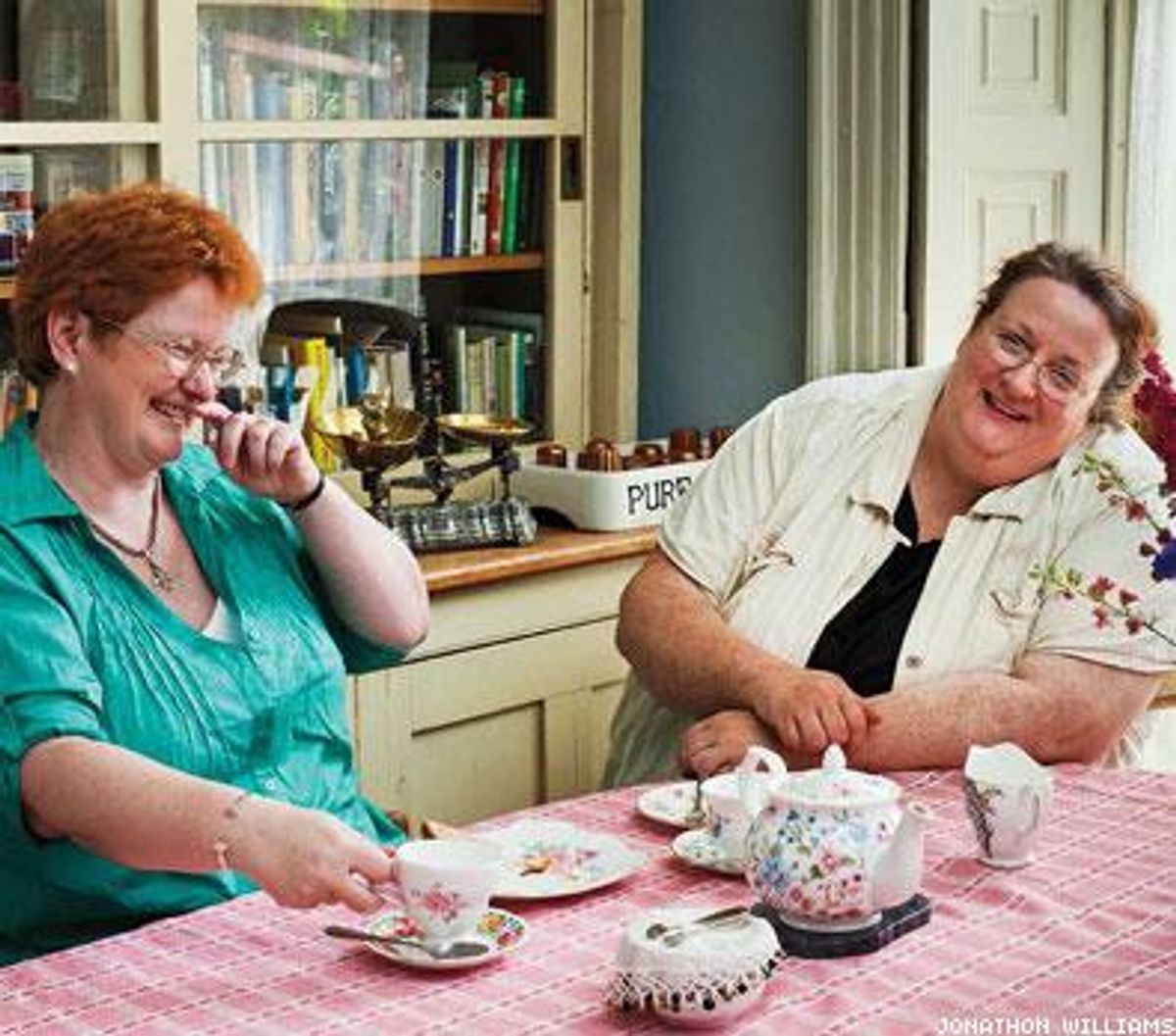














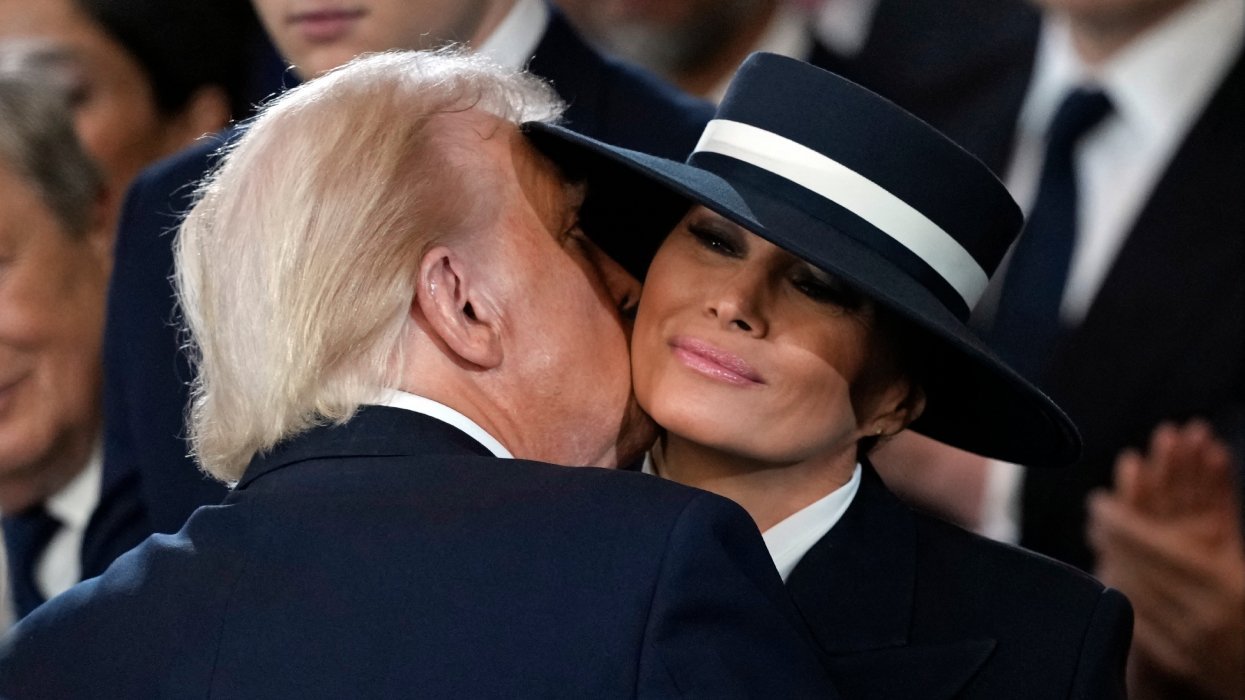


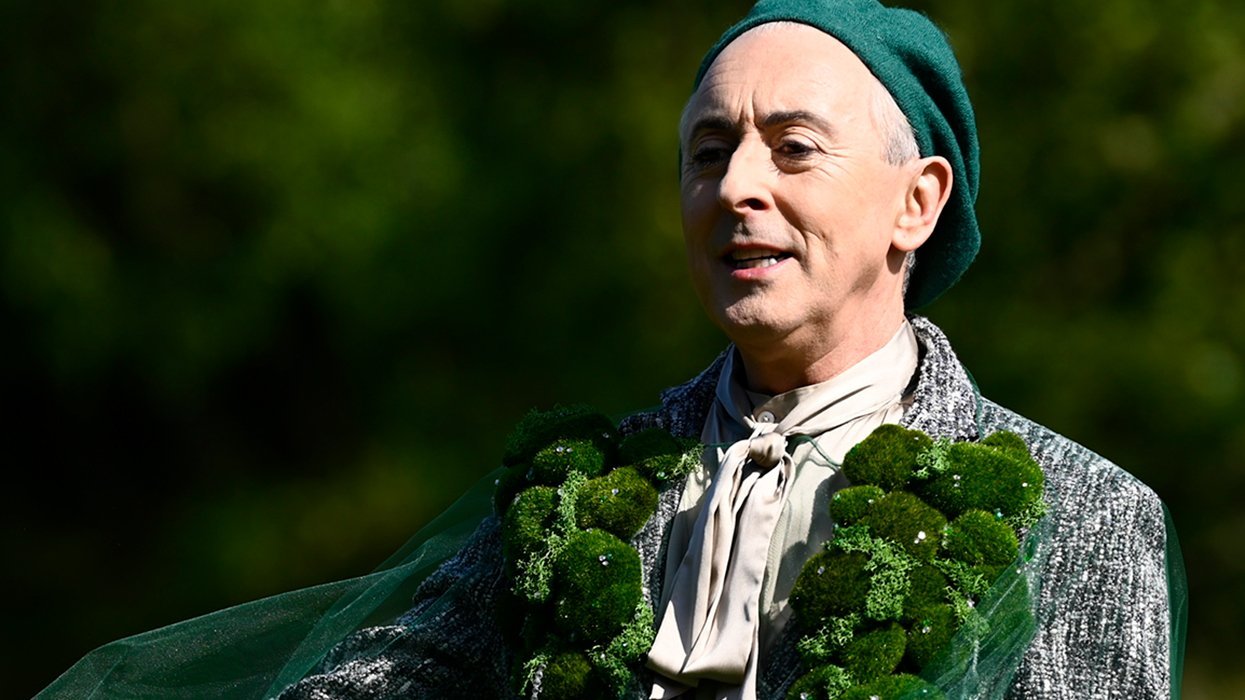
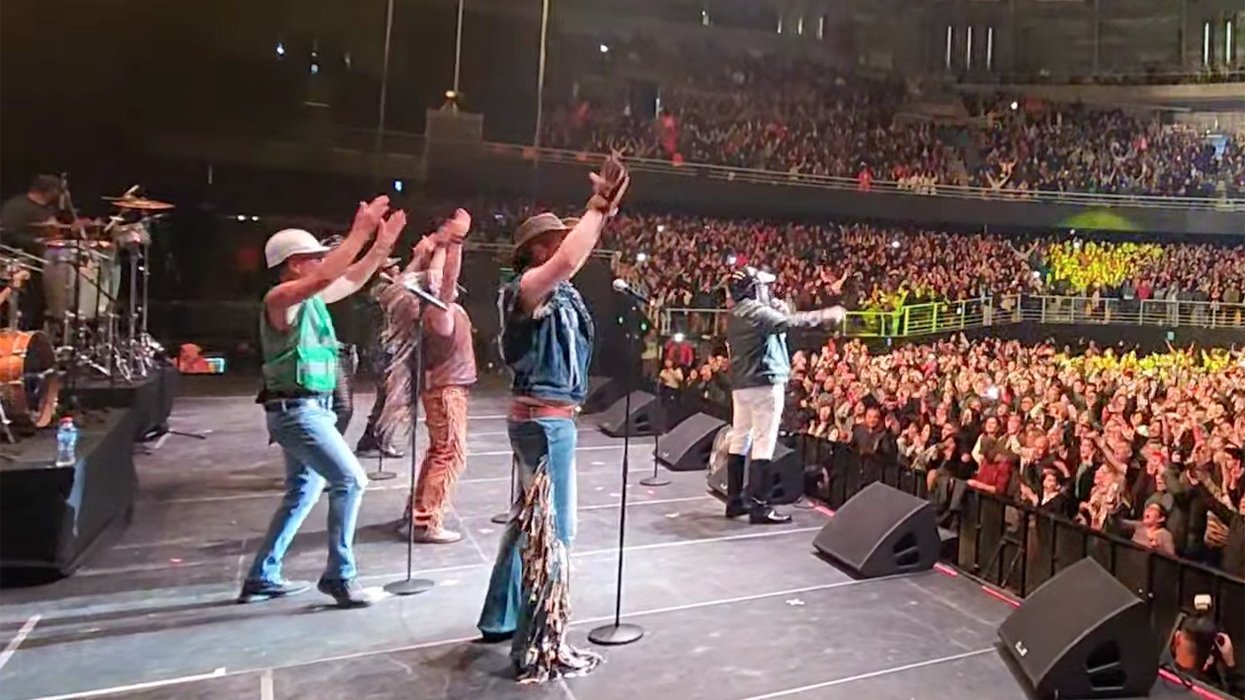

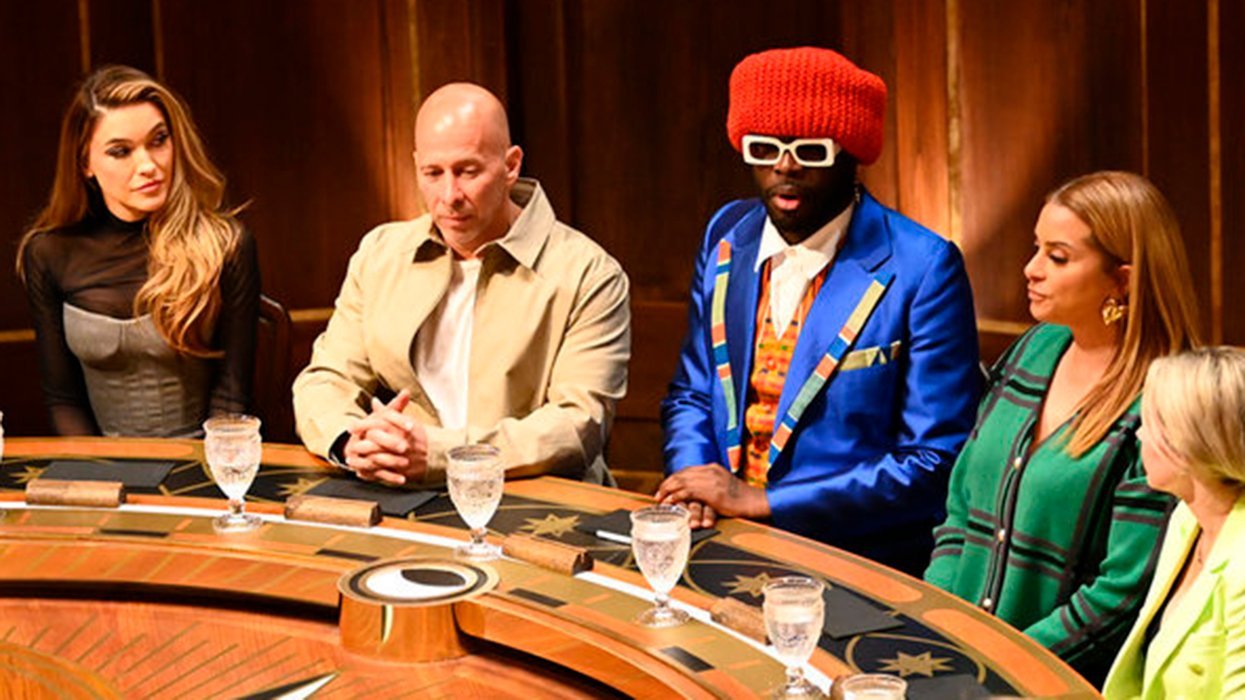

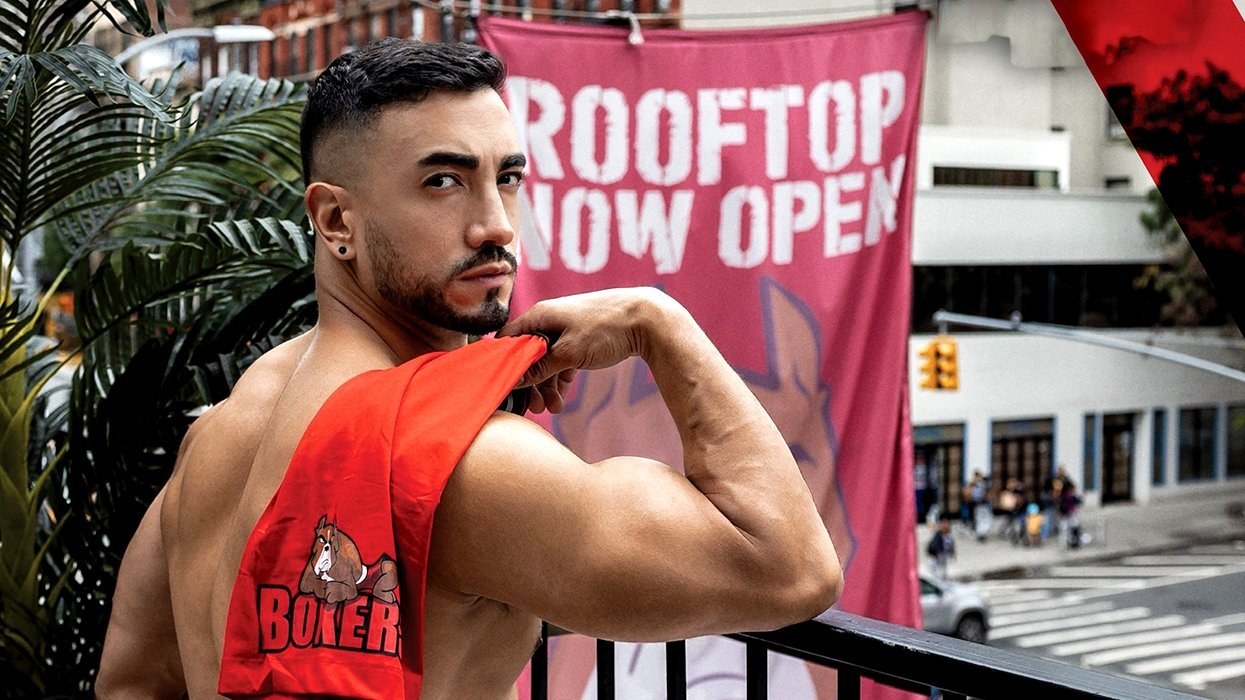
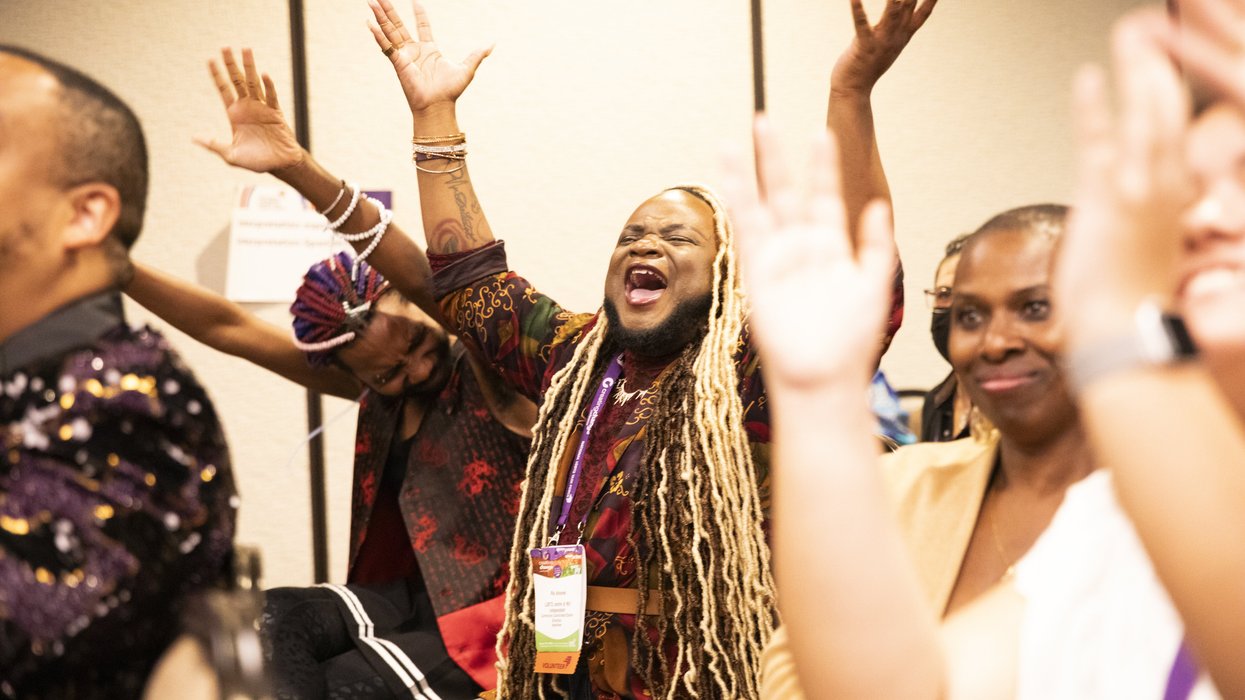
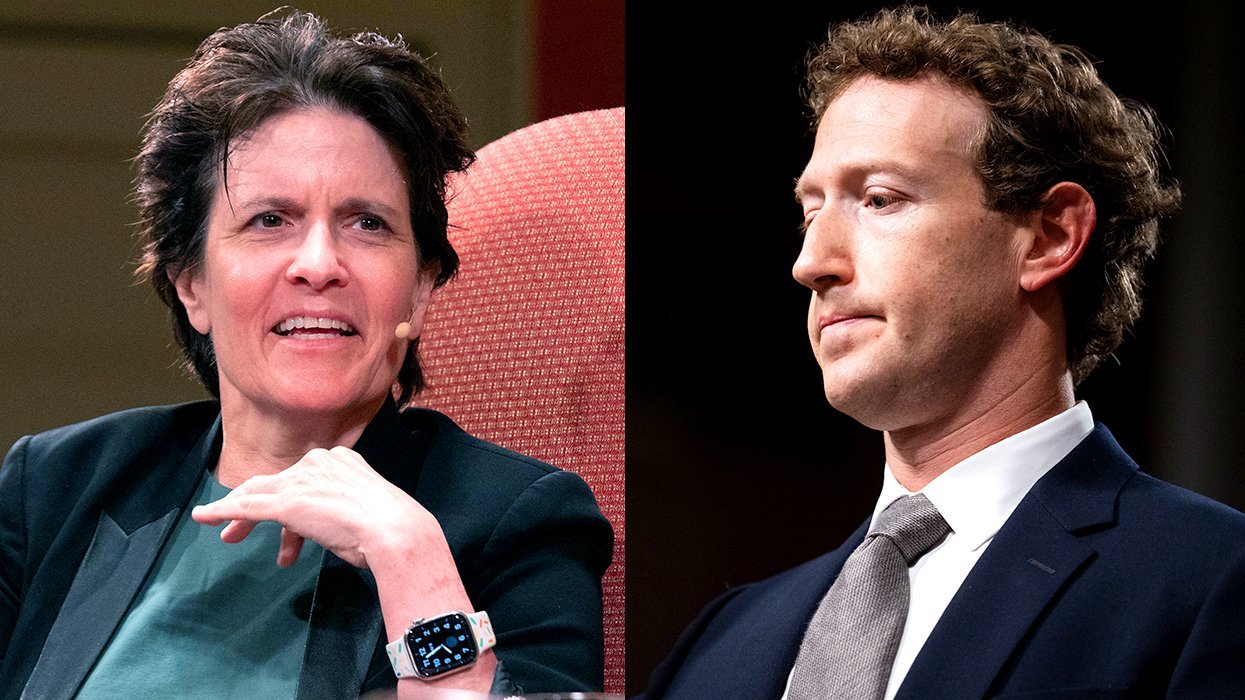

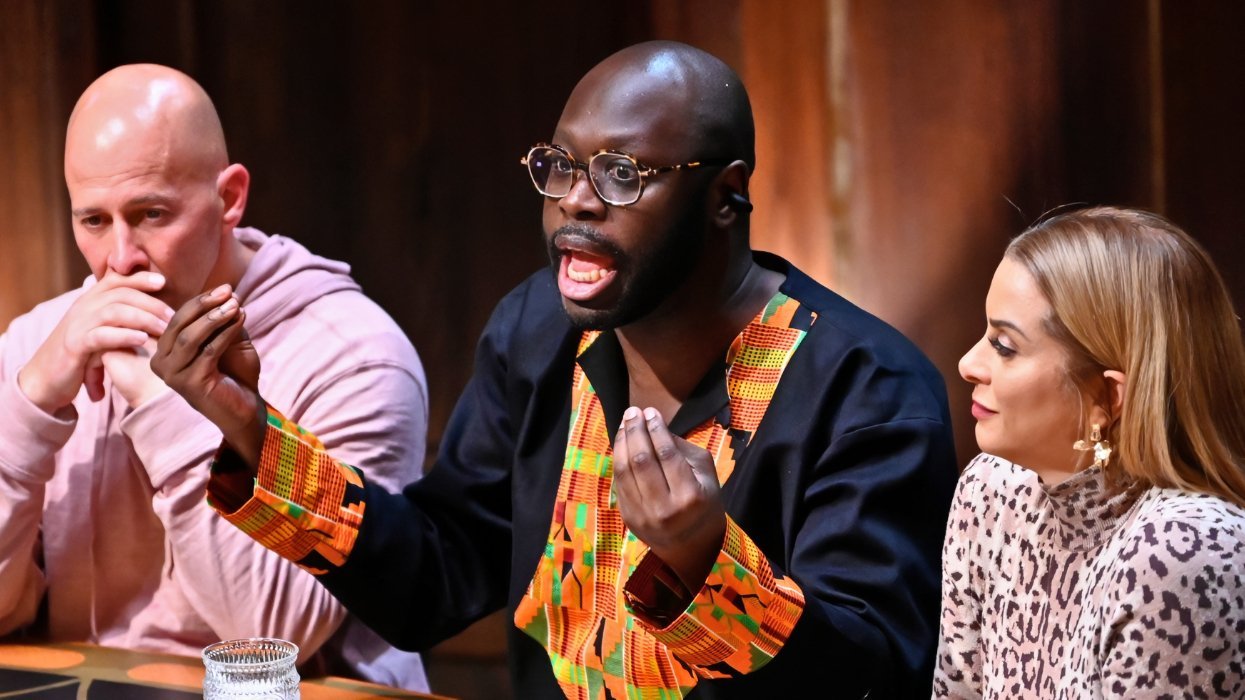



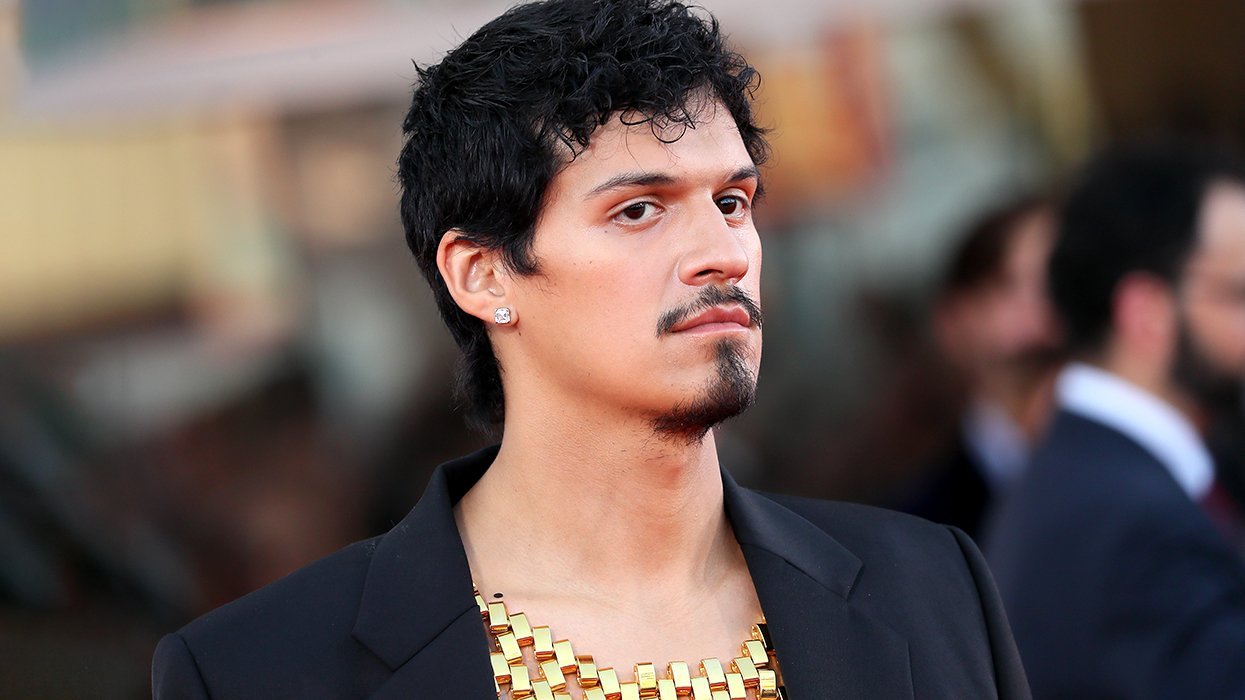












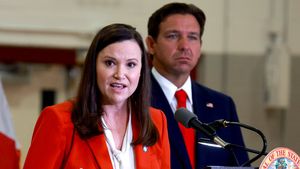




































Beware of the Straightors: 'The Traitors' bros vs. the women and gays